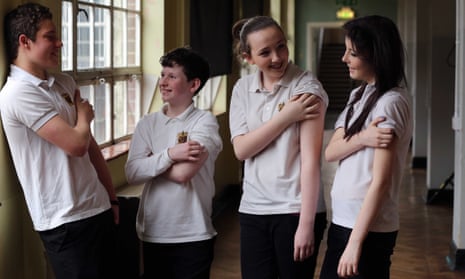There’s no vaccine against distrust in vaccines. Millions of children in the world used to die each year from infections like measles. Now, thanks to routine immunisation programmes, they don’t. But just because we hardly see these infections in the UK any more, it doesn’t mean we can be complacent.
Although nearly all British parents vaccinate their children, one in five people in the UK aren’t convinced that vaccines are safe, according to the largest ever survey of global attitudes to science and health, published this week. This is worrying, because distrust can let infections like measles come back with a vengeance.
The worldwide spike in measles last year was largely due to sharp increases in just 10 countries. Most, like Yemen and Ukraine, have been experiencing conflict or unrest. That doesn’t explain the rise in France, though, where there were six times as many cases of measles as in 2017.
In France, one in three people disagree that vaccines are safe. That’s more than in any other nation in the Wellcome Global Monitor, which surveyed more than 140,000 people in 144 countries.
In South Asia, where childhood infections are more common and more deadly, only 2% of people disagree that vaccines are safe. Compare that with 11% in North America, and a staggering 22% across western Europe. The consequences of this distrust can be lethal. In Europe, 72 people died of measles last year, including three in France.
Reassuringly, 92% of parents in the global survey said their children are getting vaccinated against childhood infections. This suggests even parents who aren’t sure that vaccines are safe mostly agree it is still important for children to have them.
In the UK, only 3% of British parents said their children were unvaccinated. Unfortunately, pockets of distrust have led to much lower rates of vaccination in certain places, which have allowed measles cases to quadruple here last year, too.
There are many reasons why you might not get vaccinated. Perhaps immunisation campaigns haven’t reached you. Maybe you don’t think these diseases are serious enough to merit getting immunity. Or you don’t have confidence in the vaccines themselves.
Wellcome Global Monitor can’t tell us why some children are not getting vaccinated, but it can shed light on people’s confidence in vaccines. In most countries, confidence is higher among people who have higher levels of trust in health experts and scientists. Trust in scientists, in turn, is linked to trust in national institutions such as the government.
So vaccine confidence is not just about giving people information or persuading them with logic – it’s bound up with how we feel about many other aspects of our lives. Understanding the causes of low confidence is important, but the next step must be to find ways to address people’s concerns effectively and build trust.
The people at most risk during measles outbreaks are babies under a year old, and people with weak immune systems due to other conditions or treatments. To protect them, we all have to put our trust in vaccines.
Vaccines are safe and they work; that’s a fact. But until everyone is convinced, everyone else is at risk.
